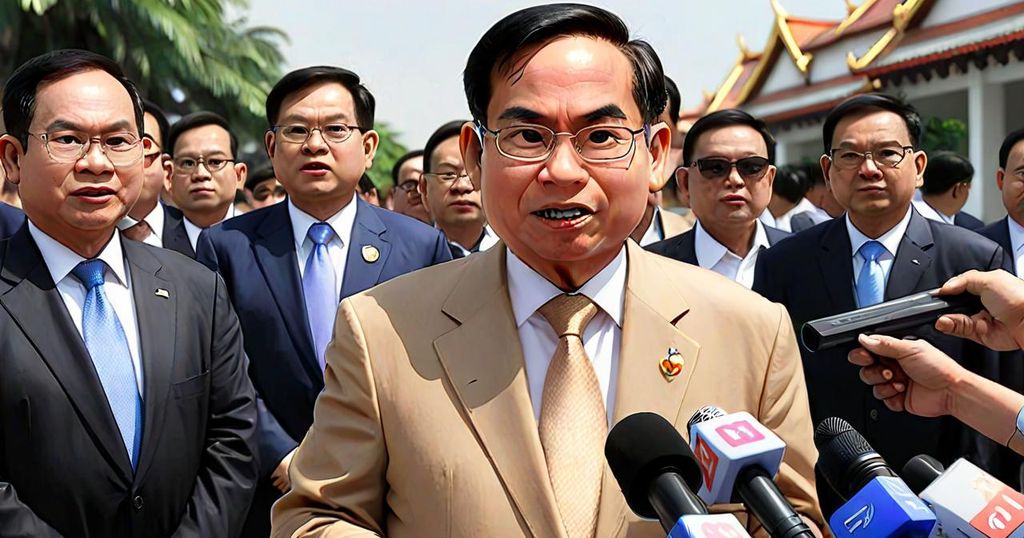Prime Minister Srettha Thavisin is currently embroiled in controversy following a proposed amendment to real estate policy, which has sparked concerns about a potential conflict of interest due to his previous role as the head of a prominent property firm.
The Cabinet, under Srettha’s leadership, has granted preliminary approval to a proposal that seeks to increase the maximum foreign ownership of condominium units in Thailand from 49% to 75%, and extend land leases from 30 years to 99 years. The intention behind this decision is to revitalize Thailand’s sluggish real estate sector, which has been adversely affected by an oversupply of properties and a decline in local purchasing power.
Prior to entering the political arena, Srettha held the position of president and CEO of Sansiri Plc, a leading property developer in Thailand. In an attempt to distance himself from his business interests, he transferred all of his 661 million shares in Sansiri to his daughter.
Nevertheless, critics have drawn parallels with the case of former Prime Minister Thaksin Shinawatra, who was accused of using his position to advance his telecom business through third-party shareholding, ultimately leading to his conviction and a five-year prison sentence.
Prinya Thaewanarumitkul, a law lecturer at Thammasat University, has expressed concerns, stating, “Transferring ownership of shares to his daughter still serves the interest of the Thavisin family, and Srettha could face criticism.”
Some individuals have proposed that rather than making significant alterations to current laws, Thailand should consider streamlining the process for granting citizenship to eligible foreign investors and skilled professionals, in alignment with the policies of the United States and European countries. This could potentially address Thailand’s aging population and declining birth rates more effectively.
The ongoing debate regarding this policy change may lead to parliamentary review rather than being enacted as an emergency decree, considering its potential unpopularity. Garnering public support remains a significant challenge; a similar proposal in 2022 by the previous government faced strong opposition and was eventually withdrawn.
As the debate continues, the question of whether these policies will have a significant impact on foreign investment in Thailand’s property market remains unanswered.
[Image credit: Facebook ไทยคำจีนคำ]
— 2024-06-29
We value your readership, subscribe to our Daily Newsletter by clicking HERE.

Leave a Reply